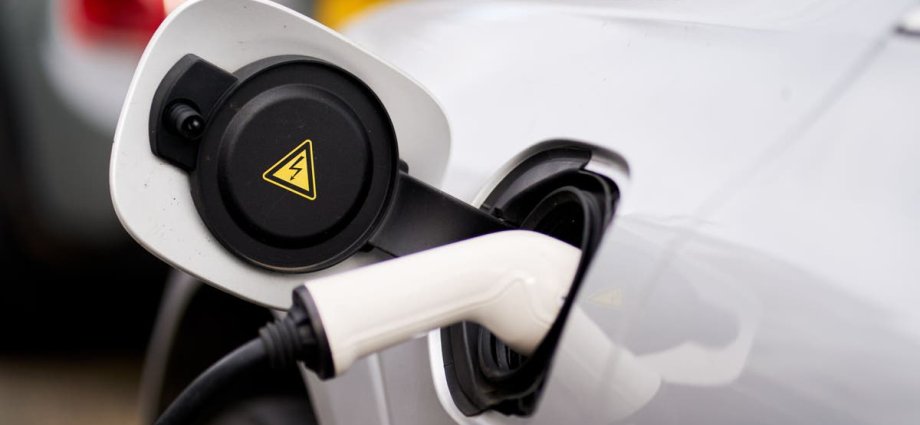Transport Secretary Louise Haigh said the Government is aware of the challenges over the transition to electric vehicles (EVs).
The Cabinet minister said it is “giving clarity” to manufacturers amid a global drop in demand for EVs.
Speaking to the PA news agency, she said ministers will announce plans for a consultation on ending the sale of new petrol and diesel cars from 2030 after the previous government pushed back the deadline to 2035.
Ms Haigh said: “I think there are challenges with the EV transition – we’re very aware of that, including the lack of certainty that the previous government introduced by moving back the deadline for transition.
“We’re clear. We’re bringing that forward to 2030 in order to give that clarity to manufacturers, and that should bring down costs for consumers as well.
“So we’ll be making an announcement about consultation on that soon as well.”
Her comments come after Uber’s chief executive said governments, including the UK, should be providing more support for the EV transition and called on ministers to stick by their pre-election pledge over the 2030 deadline.
Pressed on his comments, Ms Haigh said: “Clearly encouraging companies like Uber to transition their fleet is one of the quickest ways to get cheaper EVs onto the second-hand market and really bring down prices for consumers.
“We want to make EVs as affordable as possible, but one of the biggest barriers is people’s perception around charging and charging infrastructure.
“And there is too big an inequity across the country about where those public charging points are, and we’ll be looking to address that in future spending rounds as well.”
The Transport Secretary also said the Government provides support for companies to do fleet transition through taxation incentives.
It is also prioritising buses and supporting work to decarbonise public transport fleets across the country, she added.
Bus operator Go-Ahead announced plans on Tuesday to invest half-a-billion pounds to build hundreds of UK-made electric buses, funding up to 1,200 new zero-emission buses over the next three years.
Coinciding with the announcement, the Transport Secretary met bus industry leaders later in the day to reiterate the Government’s commitment to supporting the sector.
Next week, she is also expected to hold bilateral meetings with global business leaders at the Labour Government’s first international investment summit in a bid to attract cash to the UK’s transport sector.
Asked about the Government’s involvement in the investment deal, she said: “It’s half a billion pounds worth of investments from Go-Ahead, which they’ve been clear is a vote of confidence in this Government’s commitment to buses and to our bus revolution.”
“There was some zero-emission funding available from from the last government, but that was very limited,” she admitted.
“The rest is absolutely a significant vote of confidence in this Government’s prioritisation and commitment to buses.”
Ms Haigh said this confidence comes from the Government already laying down legislation to give local authorities across England the powers and services seen in London for the last 40 years, as well as plans for a new buses Bill to be introduced in Parliament by the end of the year.
“We’ve made buses one of our top priorities and a commitment to overturn the four decades worth of decline in passenger numbers since the privatisation and deregulation,” she added.
The Go-Ahead buses will be rolled out in areas such as Plymouth, Gloucestershire, East Yorkshire, London and the Isle of Wight.
Pressed on whether other areas of the country in need of public transport upgrades will benefit from Government plans, she said: “They’re going to [go] all over England”, adding that Oxford is “well on its way to becoming the first all-electric city in the country”.
“Clearly, we’ve got a long way to go to decarbonise the entire fleet across the country, but this is an enormous step in the right direction today,” she said.










